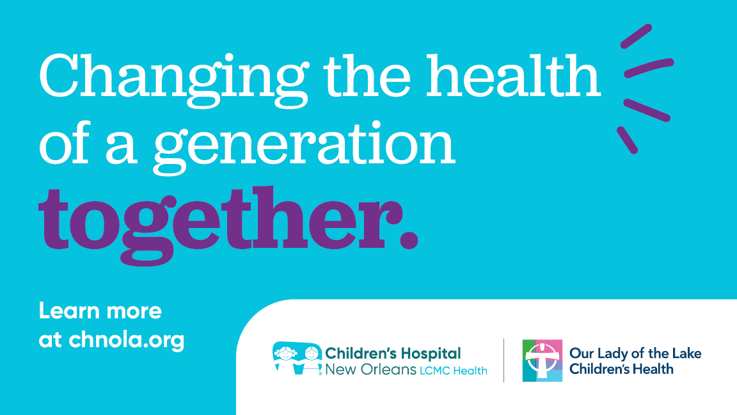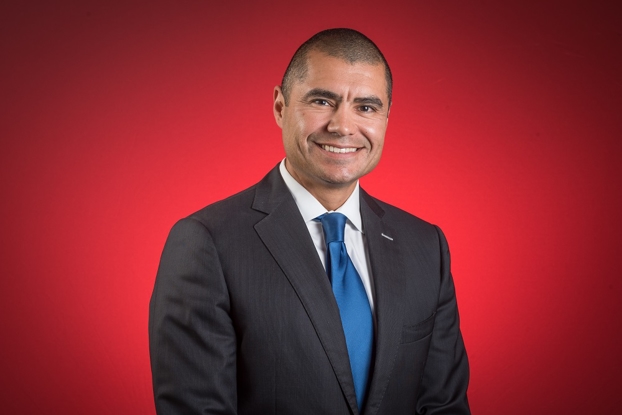Nurturing young minds: Three ways to talk to children about the importance of mental health
- Category: Living Well, Mental Health
- Posted on:
- Written By: Megan Campbell, DO, Child and Adolescent Psychiatrist

As someone who wears both the hats of a child psychiatrist and a mother, I understand the significance of fostering good mental health from a young age. Our world is changing so fast, and with it comes a greater need to equip our children with the tools to tackle whatever life throws at them. Talking to them about mental health isn’t just a responsibility; it’s an act of love that will stay with them as they grow up.
Here are three approaches I use to talk to my own children about the importance of mental health.
Kindness and empathy: Planting seeds of compassion: One of the most powerful ways we can teach our children about mental health is by cultivating kindness and empathy. Empathy is the cornerstone of understanding and supporting the emotional well-being of others. I guide my kids to recognize that people experience various emotions in response to different situations. This developmental understanding is essential, as young minds often struggle to grasp that others may not feel the same way they do. We also talk about the “golden rule” and how treating others as we would like to be treated fosters positive interactions and strong relationships.
I also encourage my children to observe the feelings of their friends and classmates, especially during challenging times. At times, we may not always be aware of their personal struggles. However, it’s crucial to be mindful and extend a little kindness to friends who might need it. By gently introducing the concept that everyone faces difficulties, we can promote inclusivity and a sense of responsibility for the emotional well-being of others. It is a lesson that goes beyond just being a good friend – it’s about being a caring and supportive member of the community.
Self-care: Nurturing the mind and body: In our fast-paced world, stress has become an almost constant companion for many, even our children. As a mother and a child psychiatrist, I stress the importance of self-care and relaxation to my kids. I explain that just like their bodies need rest after physical activity, their minds also require moments of calm and recharge. We discuss the significance of family time, engaging in activities they enjoy, and simply taking moments to breathe and relax. This can involve reading a book, drawing, spending time in nature, or even just having a quiet chat with loved ones. By incorporating these practices into their daily lives, my children are learning that their mental well-being is just as important as physical health.
Developing introspection and emotional regulation: Helping children develop introspection and emotional regulation skills lays the groundwork for a lifetime of healthy mental health practices. For young children, understanding and identifying emotions can be challenging. When working with small children, ask them questions like, “How does your body feel when you are angry?”
We also explore triggers that might contribute to emotional meltdowns, such as tiredness or hunger. Recognizing and acknowledging these triggers teaches children to identify their feelings and consider the underlying causes. This awareness is the first step toward discussing emotions openly and honestly. By helping my children understand their emotions, I’m equipping them with tools for emotional regulation. When they are upset, they are learning to recognize their feelings, identify the triggers, and develop strategies to calm themselves down. These skills are invaluable as they navigate challenges and setbacks throughout life and into their adult years.
A final thought
Remember, talking to your children about mental health is not a one-time conversation; it’s an ongoing journey of nurturing their emotional well-being. By emphasizing kindness, empathy, self-care, and emotional regulation, we are empowering our children to build a strong foundation for their mental health. I believe that these conversations are not only vital for their personal growth, but also for creating a more compassionate and understanding society for many generations to come.
To learn more about Mental and Behavioral Services at Children’s Hospital New Orleans, visit:
Mental and Behavioral Health Services | Children's Hospital New Orleans (chnola.org)



